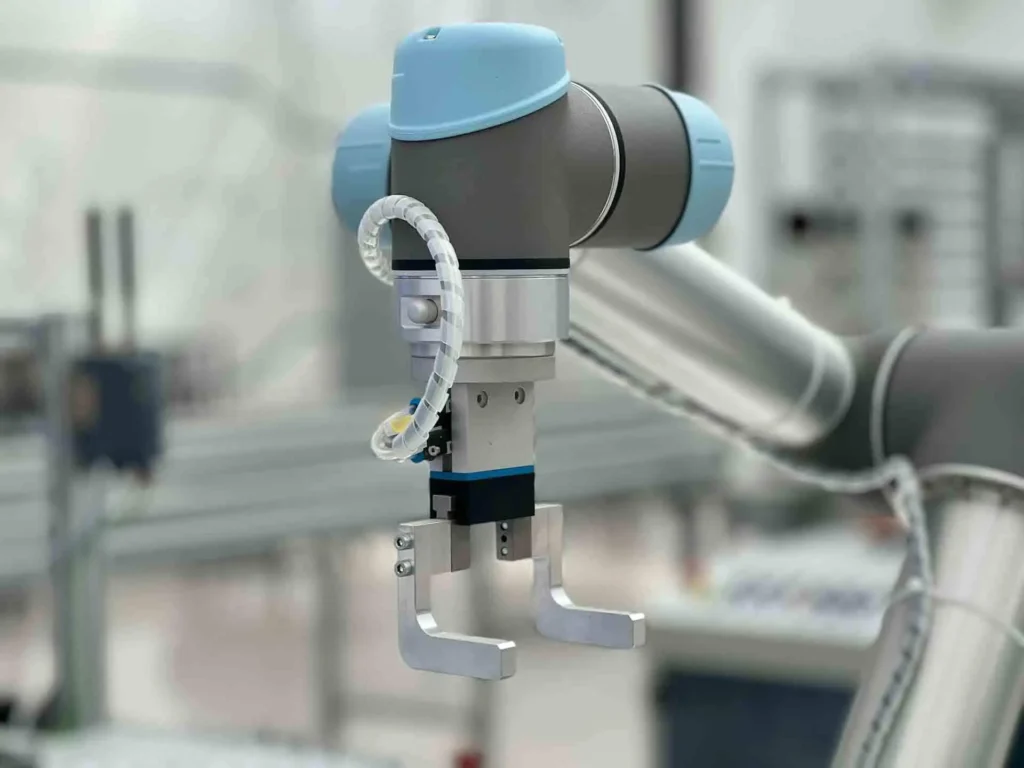Artificial intelligence is no longer a futuristic concept – it’s here, transforming the way we work. Today, AI is simplifying everyday tasks and speeding up processes. Across every industry, AI is reshaping how business is done.
The Human Resources department is one area experiencing this shift firsthand. HR teams, once buried under mountains of paperwork and manual processes, now use AI to refocus their energy on the human side of their roles.

In this post, we’ll explore how AI is actually being used in HR today and the benefits it delivers. We’ll also take a look at what lies ahead.
The Role of AI in HR Operations
So, what does AI in HR look like on a day-to-day basis? The main role is simple: handle the repetitive, time-consuming tasks so that human professionals can focus on work that requires strategy or empathy.
Take hiring. A manager who used to spend hours sifting through hundreds of resumes can now use AI-powered tools to scan and shortlist candidates in minutes. These tools match skills and experience to the job description with remarkable accuracy.
Similarly, an HR generalist who constantly fields the same questions about vacation time and benefits can rely on AI chatbots to provide instant answers 24/7. Employees get the information they need immediately.
Beyond automation, AI is a powerful predictive tool. It can analyze large sets of data to identify patterns and trends that humans might miss. For instance, it can preview engagement survey results and communication patterns to flag potential burnout or identify employees who might be at risk of leaving the company. This gives HR teams the chance to act early by offering support before burnout sets in or checking in with valued employees before they decide to leave.
Top Benefits of AI in HR
The practical applications are impressive, but the real impact lies in the benefits.
Smarter Hiring Decisions
AI helps identify candidates with the right potential and cultural fit by analyzing their profiles or assessments. It does this far faster than humans can read through resumes or applications. This leads to a higher quality shortlist and better long-term hires.
Better Employee Experience
Chatbots guide new hires through onboarding. Personalized learning platforms recommend training courses. Feedback tools track how employees are doing. When employees feel heard and supported, engagement and satisfaction improve.
Improved Decision-Making with HR Analytics
AI can analyze turnover rates and recruitment costs, and assess the effectiveness of training programs. This gives HR leaders the data they need to make informed decisions, like where to allocate their budget for the biggest impact or how to structure teams for better results.
Reduced Bias and More Objective Screening
It’s no secret that humans have unconscious biases. Properly designed and monitored AI systems can create a fairer hiring process. By focusing only on skills and qualifications, AI screening tools help ensure a more diverse and inclusive candidate pool. Everyone gets a more equal shot.
Importance of Artificial Intelligence in HR Today
AI’s role in HR isn’t going away any time soon – it’s continuously growing and changing. Its importance can be summed up in a few key areas:
- Efficiency: AI automates the tedious and repetitive administrative work, freeing HR teams to focus on human-centred tasks.
- Scalability: Whether hiring 10 people or 1,000, AI systems can handle the load without requiring a linear increase in HR staff.
- Supporting modern work cultures: With hybrid and remote work on the rise, AI tools help maintain connection and track productivity fairly to ensure consistent communication across dispersed teams.
- Employee development: AI identifies skill gaps across your organization and recommends training programs for employees. This prepares your workforce for any future business needs.
What the Future Holds for AI in HR
The future of AI in HR is moving toward even more personalization and autonomy. Here’s what to expect.
Hyper-personalized HR Experiences
AI will act like a personal career coach for each employee. It might recommend a specific online course to close a skill gap or suggest a mentor within your company. It could even encourage an employee to take time off based on their calendar and communication patterns. The employee experience will be tailored to individual needs and goals.
Autonomous Employee Management Tools
AI systems will handle routine, approved actions on their own. This could include automatically scheduling interviews based on everyone’s availability or creating personalized welcome emails for new hires. Many processes will run from start to finish with minimal human input.

Unlock Data-Driven HR Success – Talk to Our Experts
Transitioning to an AI-powered HR function can feel overwhelming. Choosing the right tools doesn’t have to be complicated. We are here to help. Our experts can guide you in using AI to build a more efficient and data-driven HR strategy. Get in touch today!
In Summary
The role of AI in HR is to enhance and complement your team’s skills – not replace them. It’s about giving human resource professionals intelligent tools that remove friction and let them focus on the human element of their job: building relationships and developing talent. By embracing AI, HR becomes more impactful and better equipped to build a workforce that is ready for the future.
Recent Posts
-
Published on: October 21, 2025
-
Published on: October 14, 2025
-
Published on: September 23, 2025





